New economies and forms of sustainability.

The acronym ERTE has been one of the most used terms between 2020 and 2021. According to the Spanish Labour Law of 2021, an ERTE [Spanish for Record of Temporary Employment Regulation, known in English as Temporary Redundancy Plan] is a procedure to be used by companies in an exceptional situation of technical or organisational difficulties, putting their continuity at risk. The company is authorised to fire workers, suspend employment contracts or reduce their working hours temporarily and with a time limitation. During the years we lived through the COVID-19 crisis, ERTE procedures have been propagated as a palliative measure to the negative effects caused by the pandemic on companies and employment.
In relation to this quite recent situation, the Catalyst of the axis ‘New economies and forms of sustainability’ takes as its starting point the following question: what would happen if we think and implement ERTEs in a different way? This acronym would then be read as Economías de Rebusque, Transformadoras y Emancipadoras [Transformative and Emancipatory Moonlighting Economies]: economies that can work as survival strategies.
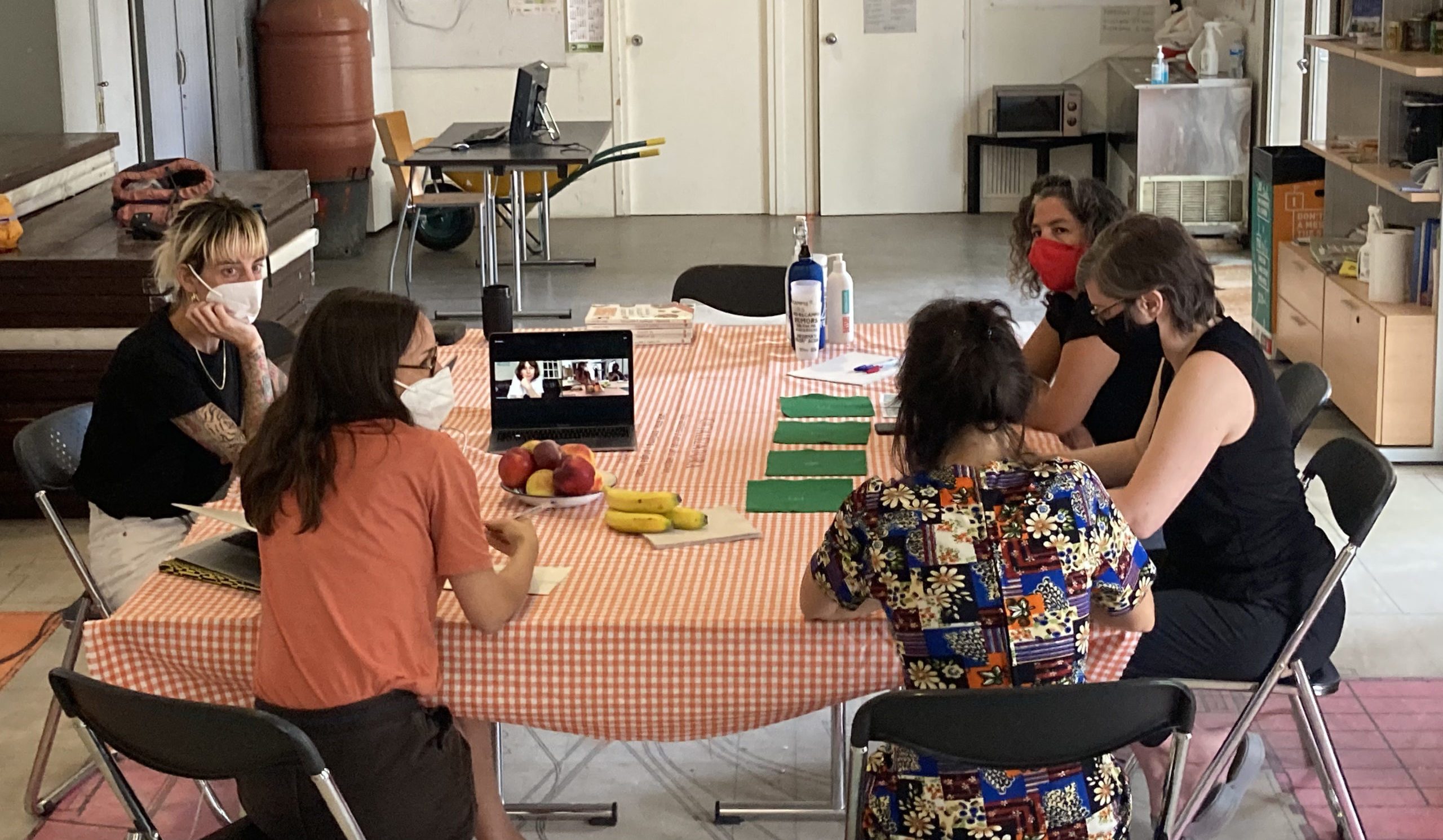
How the economy works should not be understood as dissociated from the society in which it is embedded (Karl Polanyi, 1944). Between the economy and society, between the economy and everything else, between the economy and life, it is important to take into account two relevant currents of political economy: moral economy and feminist economy.
Moral economy focuses on analysing the moral values and cultural norms that can be found in all economic practices. Feminist economy focuses on issues that are far from the elements usually taken into account in economic analysis, moving the discussion towards the issue of care. According to the economist Amaia Pérez-Orozco (2011:32), ‘putting sustainability of life at the centre means envisaging the socio-economic system as a set of different spheres of activity (some of them monetised and some others not) whose articulation must be assessed in relation to the ultimate impact on life processes’.
This theoretical basis has been used by this Catalyst to explore and imagine the new idea of ERTE in relation to:
> the sovereignty and autonomy of the hybrid processes of social transformation rooted in the territories
> the relationship between both ends of the production-distribution-use/consumption chain
> short circuits
> the division between productive and non-productive bodies/materials
> residue and waste as possibilities
> reciprocity
> the relation between time and care
> the relation between ‘rural’ and ‘urban’
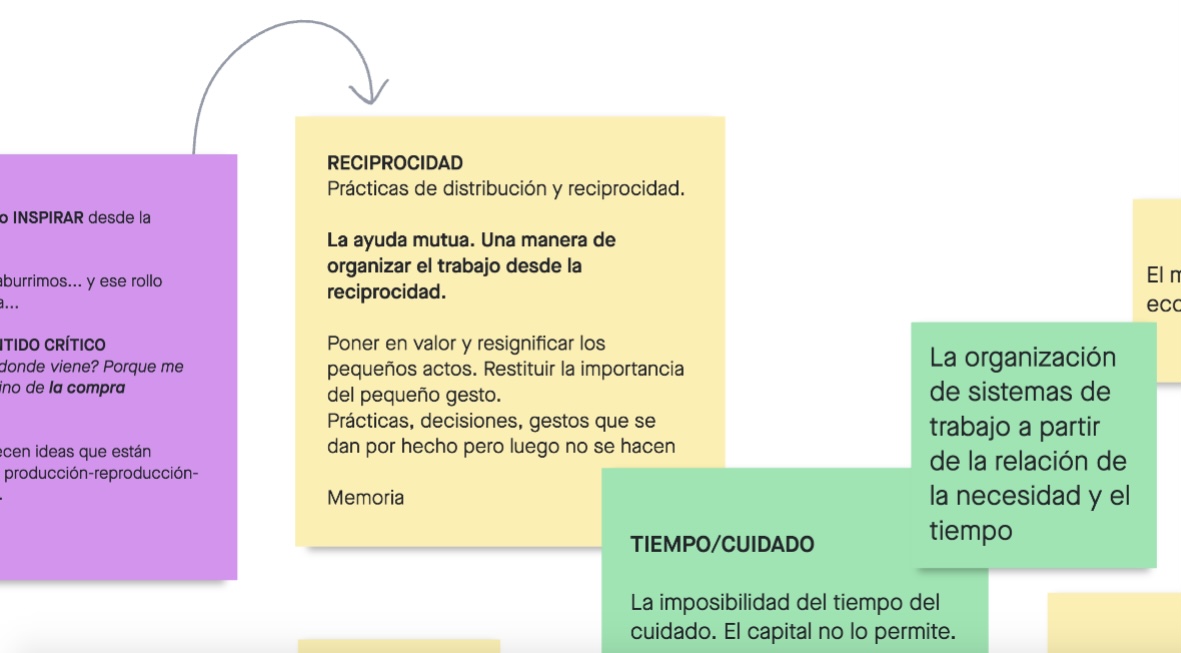
Based on these interests shared among the members of the Catalyst ERTE, in the period July 2021-December 2022 we have explored forms of economy that put sustainability of lives and environments at the centre.
The Catalyst ERTE has focused on the livestock context of the suburban area of Collserola, and has allied itself with the interest in wool shared with a number of artistic and social collectives.
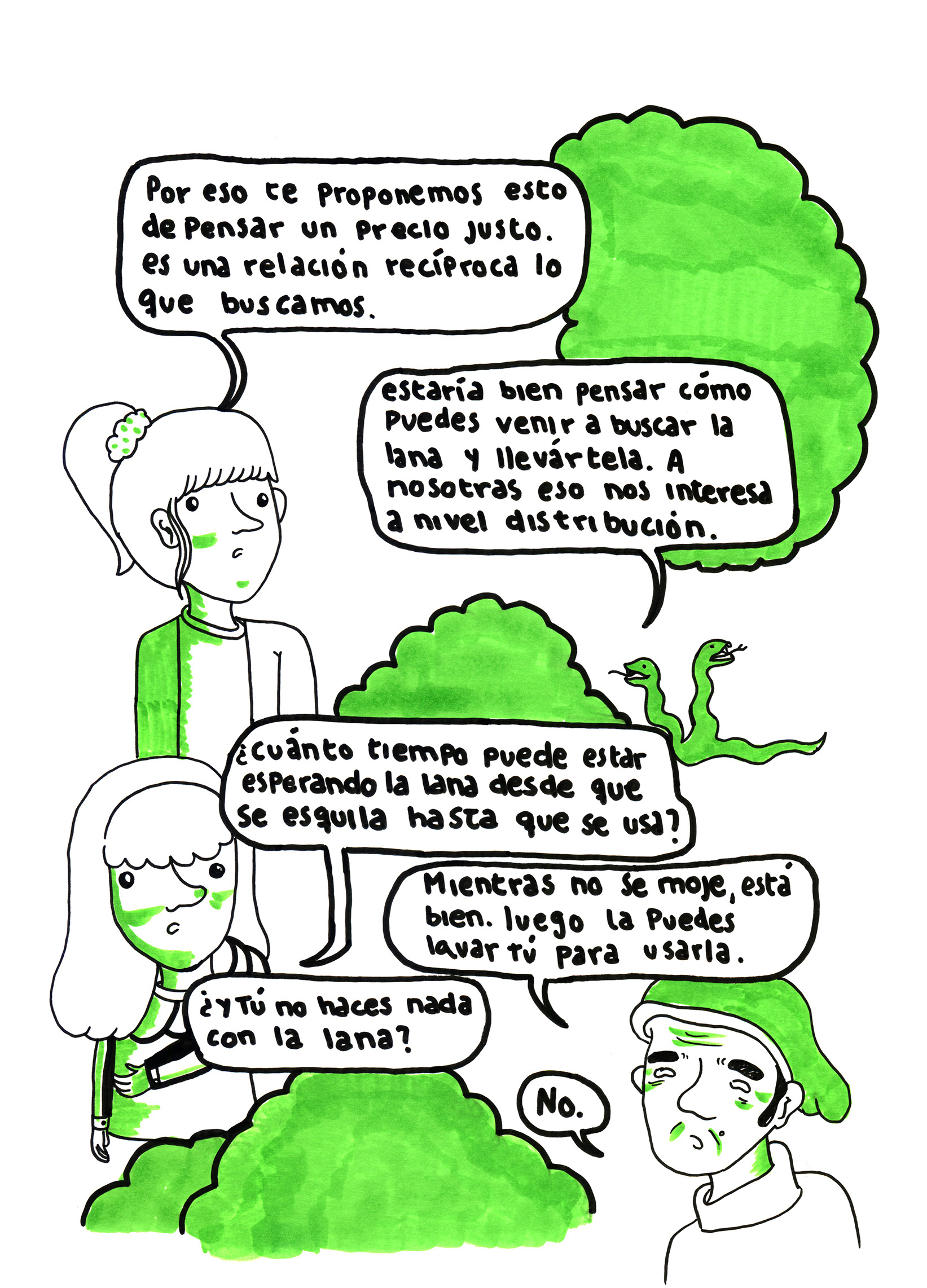
This Catalyst has been developed in THREE PHASES:
1 > INTERNAL PROCESS of conversation, exchange and group discussion between the members of the Catalyst. (You can get to know more about this process here: Fanzine ERTE vol I)
2 > LINKAGE between the Catalyst and agents from the SHEPHERDING and agroecology sector in the area of COLLSEROLA, with the aim of getting to know the needs of this suburban area and its inhabitants. We note and appreciate the collaboration with Damià Gibernet, Zaira Arlandi and Josep Montoya (more information about them in the ‘Allies’ section). (You can get to know more about this process here: Fanzine ERTE vol 2)
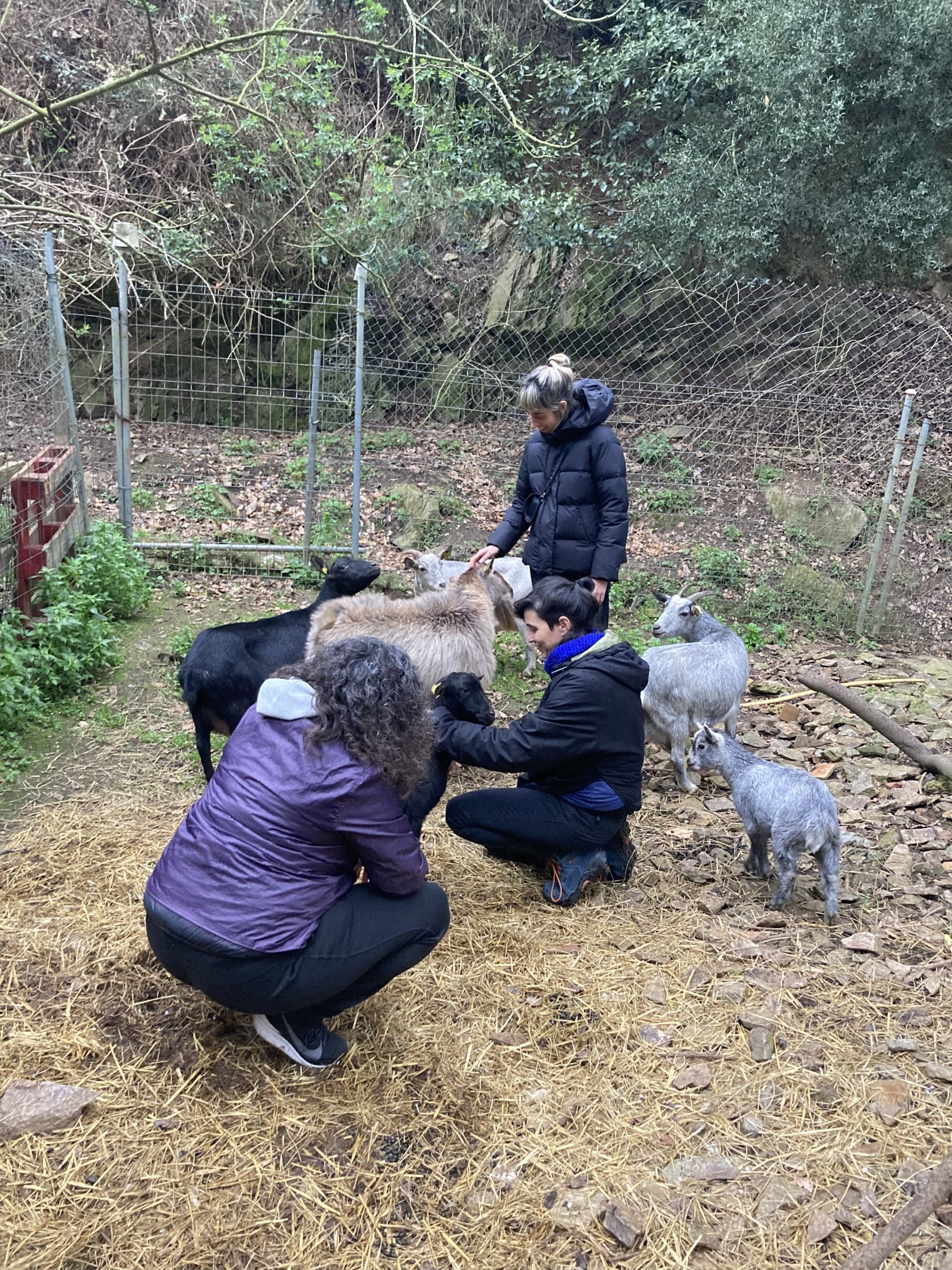

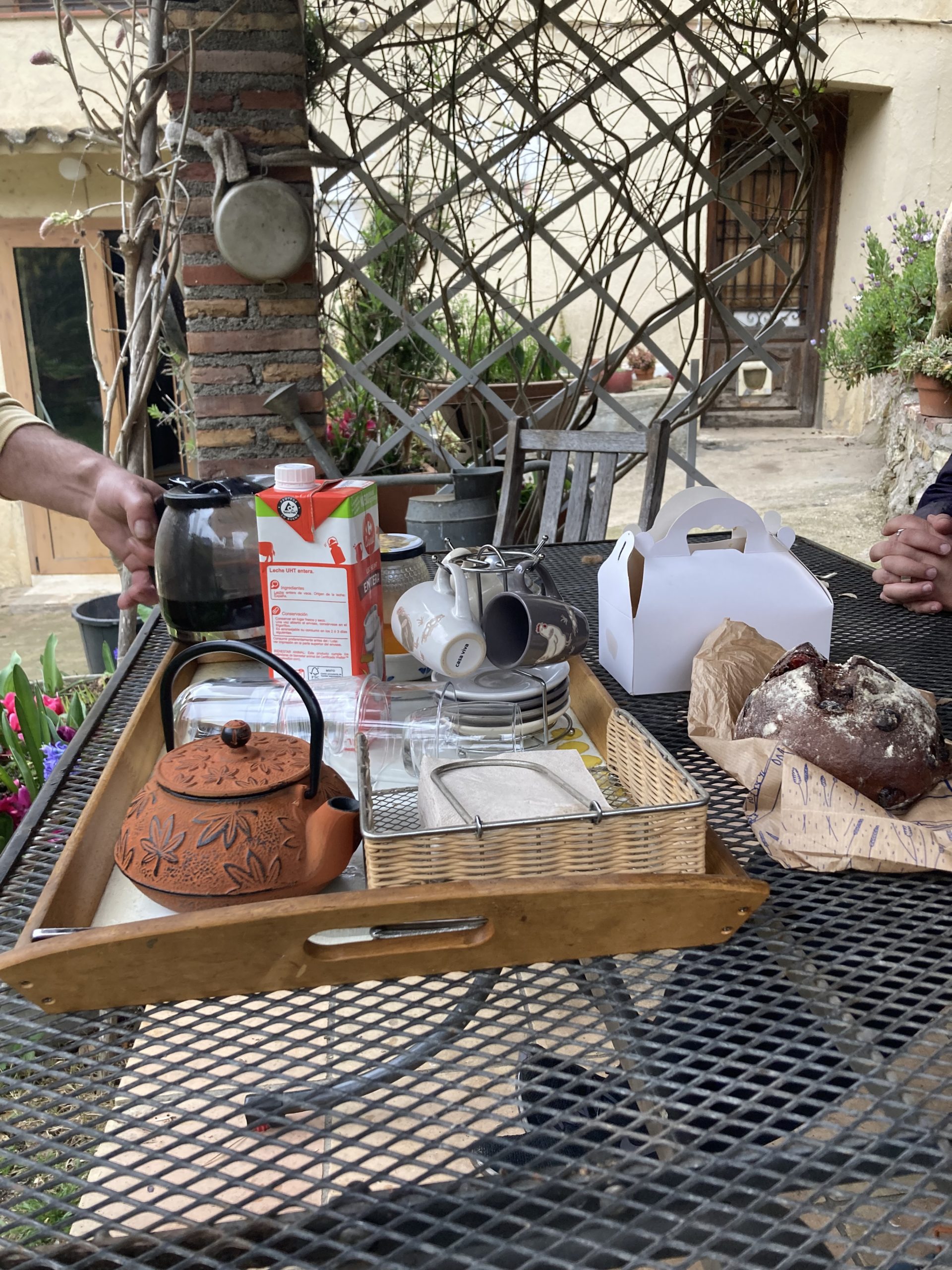
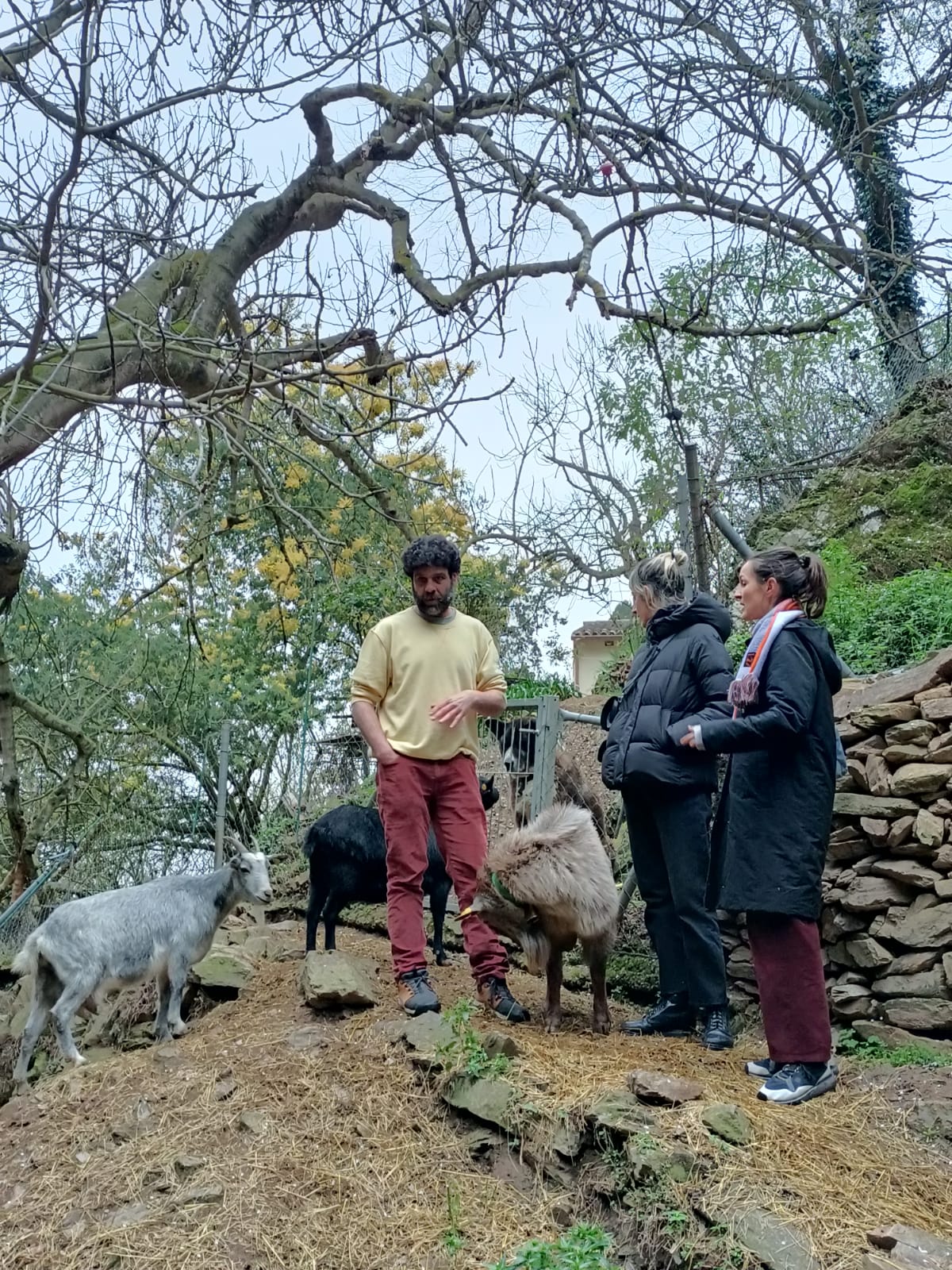

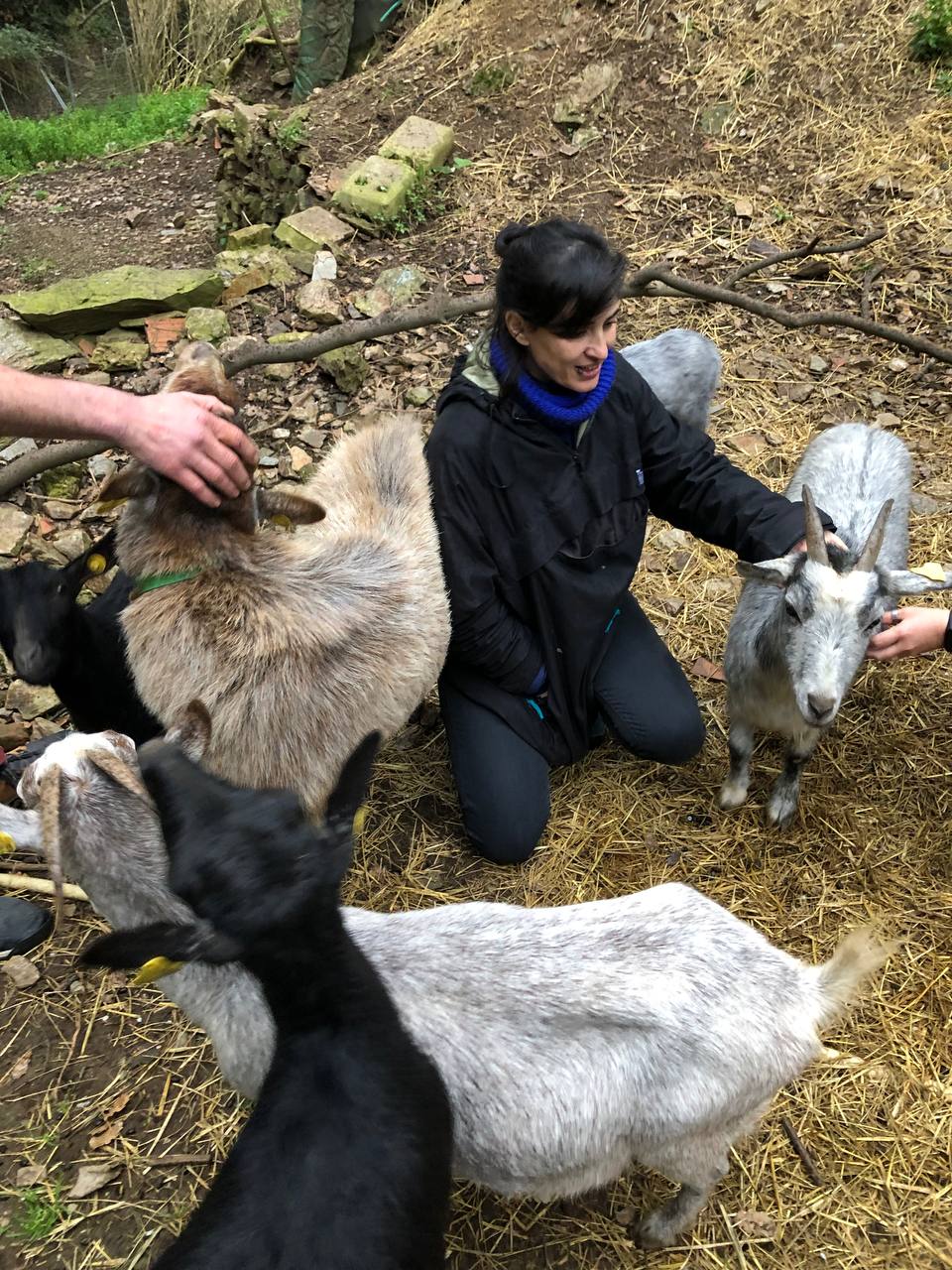
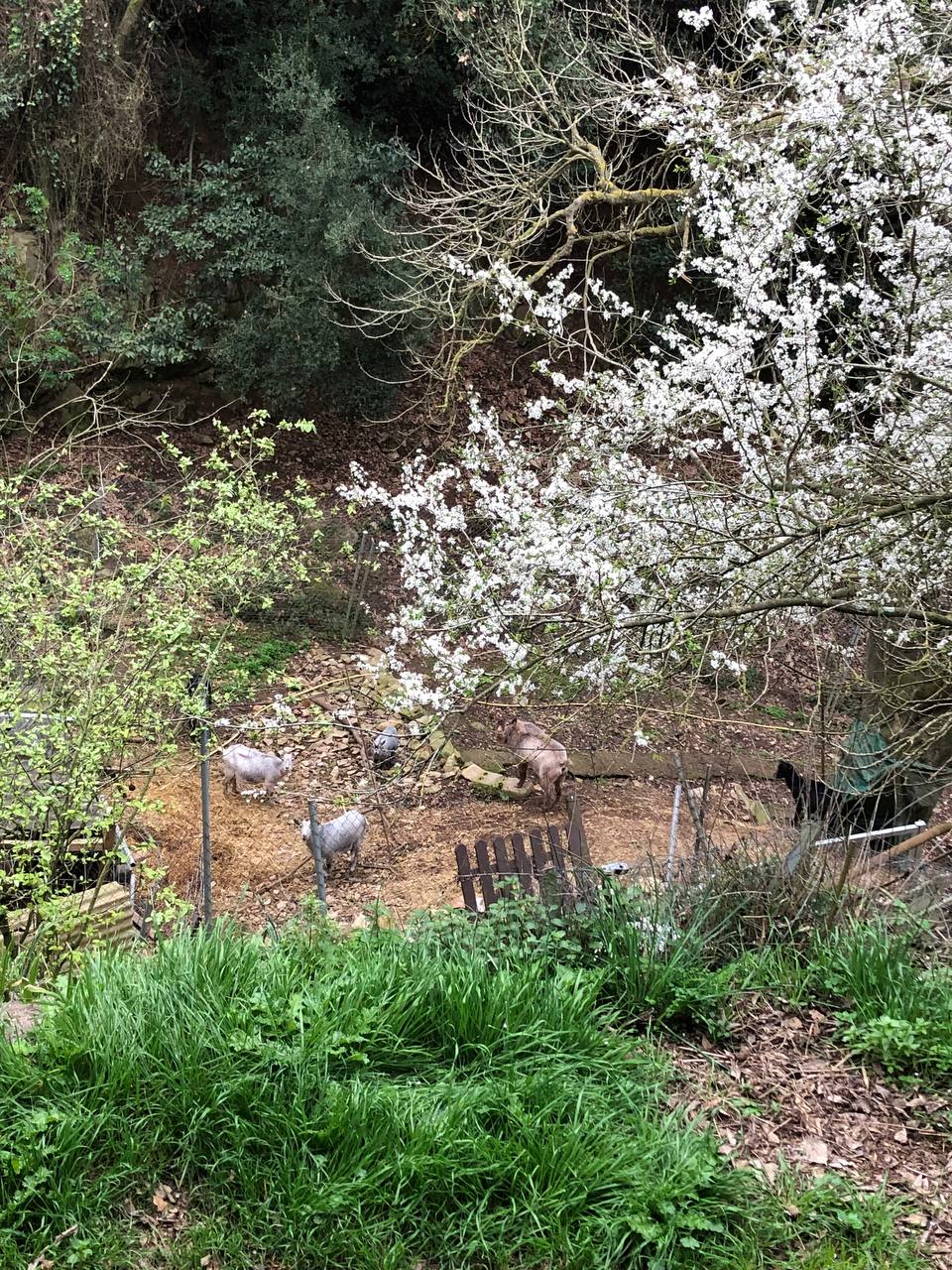
3 > SOCIALISATION of the information collected around the following questions: what is currently done with the wool from the sheep of Collserola? What could be done with it? The aim is that of activating utilisation chains of a resource that is currently being discarded and, with this, promoting the creation of networks. This socialisation has been carried out through the publication ‘Collserola wool will not be thrown away’.
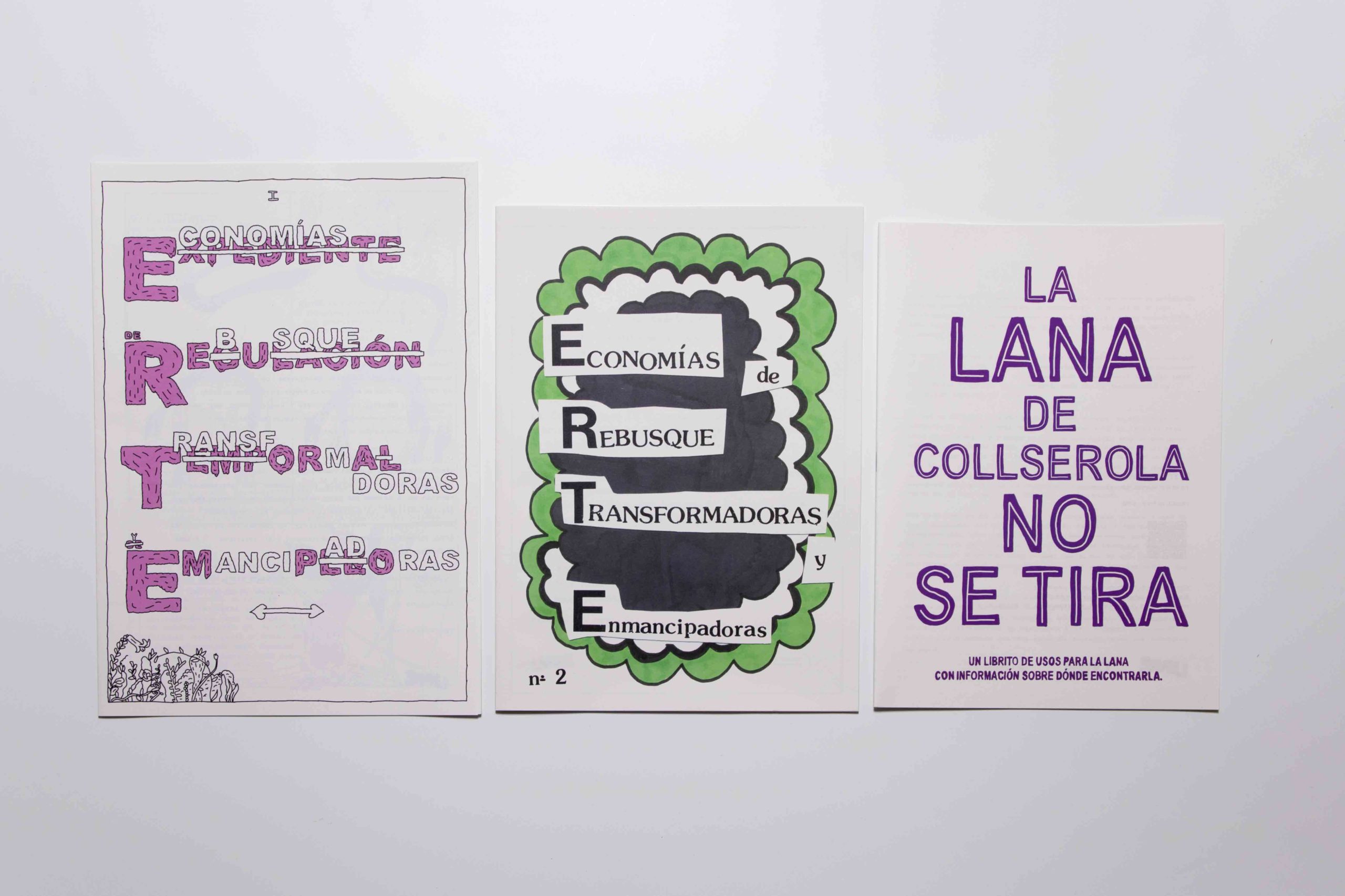
You can download a digital copy of the booklet Collserola wool will not be thrown away here!
Catalyst ERTE has a dream team consisting of: Bibiana Martínez, a social anthropologist specialised in political economy, as an agent of the academic field; Marina Monsonís, a cook working in art/agro-eco-logical communities, as an agent of artistic practice; Les Mercedes, an ethical, sustainable and inclusive courier services cooperative, representing social initiatives; and Larre, a collective and proactive feminist force, as the prime mover and coordinator of the project (for more info, visit the NETWORK section in this website).
From experiences and knowledges exchanged and connected in the Catalyst ERTE, the open process of the theoretical and practical, collective and collaborative research keeps on evolving in the following CHAPTERS: